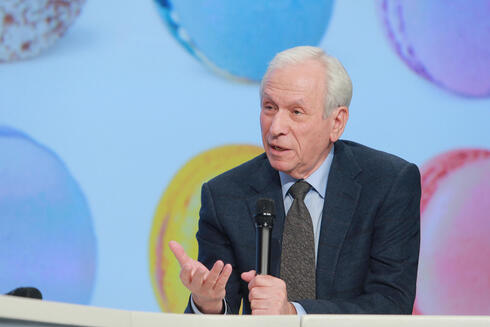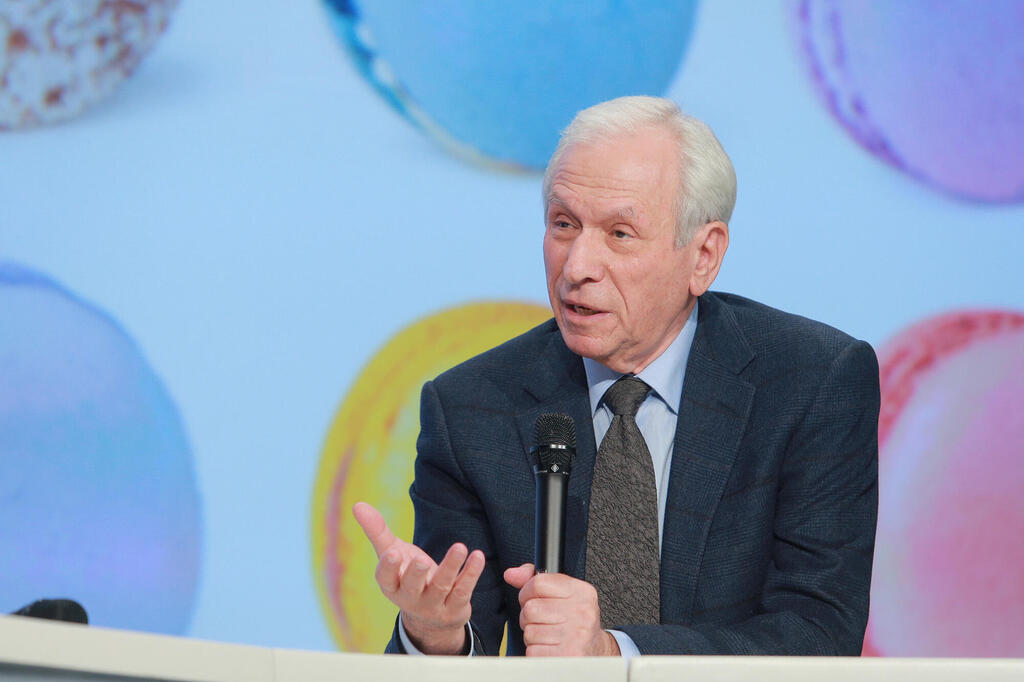
Israeli high-tech pioneer Zohar Zisapel passes at 74
Israel’s high-tech industry bid farewell this past weekend to one of its founding fathers. Just last week Zisapel shared his insights with Calcalist in what would be his final interview
Zohar Zisapel, one of the founders of the high-tech industry in Israel, died on Saturday at the age of 74 after a long battle with cancer. In the 1980s, Zisapel, together with his brother Yehuda, founded the RAD Group, which at its peak included more than 20 independent high-tech companies - most of them in the field of computer communications. Among the companies were RAD Data Communications, Radware, Radwin, RADCOM, Silicom Connectivity Solutions and Ceragon Networks.
Zisapel has also invested privately in many companies - in recent years mainly in the fields of autonomous vehicles, cybersecurity and medical research. Among the companies he invested in are Wiz, Adallom, Talon Cyber Security, Argus, Innoviz and others.
Together with his brother Yehuda, Zohar Zisapel contributed to various non-profit organizations, to technological research and to the promotion of Israeli high-tech. About a year ago, the two received the highest award given by the Technion, for "a life's work for the Technion and for a contribution to the advancement of humanity, the well-being of the Jewish people and the State of Israel." The Technion announcement states that the award was given for "being one of the pillars of the Israeli startup nation... for their educational, social and philanthropic activities, focused on nurturing young men and women from the periphery and promoting excellence in Israeli education."
The signs of the disease were already visible in Zisapel in last year’s ceremony, and in an interview with Calcalist - conducted with him only last week and not yet published - he briefly commented on his condition: "I am sick and do not hide it. Me and the cancer are at a draw, I did not defeat it and it did not defeat me. I do not recommend this disease." In response to the question of whether he considers himself the father of high-tech in Israel, he answered: "High-tech has many fathers. Some of them are very young, such as the entrepreneurs of Wiz, Armis and others. This is the strength of the industry, and even the current government, despite the damage it has caused, will not be able to kill it."
During the interview, Zisapel referred at length to the consequences of the government’s proposed judicial reforms on local high-tech, and especially to the trend in which entrepreneurs register their companies abroad. "It is troubling that new Israeli companies are registered in Delaware, USA, and not in Israel," he said. "This will cause damage for many years to come and is all a result of the government's actions. Today's young people are not what we were, they are more international, more flexible, they have no problem living in the United States. It is more difficult to build on the Zionist sentiment, that's why I'm afraid.
"I was active in the 1990’s, when the investors pressured us to register the companies abroad and not in Israel. They also demanded American CEOs and all kinds of nonsense like that. It took time for the investors to gain confidence regarding the Israeli companies and the Israeli executives. What is happening now is taking us back 20 years."
As to the question of whether he believes the situation is reversible, Zisapel replied: "It is not reversible in a year or two, maybe in 20 years, because there is a loss of trust. It is a very dangerous process. I think Netanyahu understands this. The other politicians who promote the reform do not understand at all the damage they cause. I am amazed by the stupidity and audacity of politicians, who do not understand what they are doing. They follow the same line - and it does not matter to them how much destruction they cause. But the address for the complaints is the Prime Minister. He is the one who cooked all this up."
Zisapel also spoke about the importance of education for reducing gaps and social leadership: "My father had a shoe store, and my mother helped him in the store. They came to Israel before the Holocaust, and the family that remained in Poland was wiped out. My father worked in his sister's shoe store, until he opened a store himself. As children, Yehuda and I worked in his store, but our parents constantly insisted that we study. They didn't tell us what to study, but it was very important to them. If there is a message for all Israelis who feel that they have been deprived, it is to make sure that their children learn and not have to talk about deprivation."
Many in the high-tech industry paid tribute to Zisapel, including founders of companies he believed in, invested in, and accompanied down the road. The founders of Wiz and Adallom, Assaf Rappaport, Yinon Costica, Ami Luttwak and Roy Reznik, said: "Our hearts are broken by the news of the death of Zohar Zisapel. He was the first to believe in us in Adallom, and thanks to him the establishment of Wiz was possible. He changed our lives for the better, not only thanks to his faith in us and technological knowledge, but mainly due to the enormous generosity he showed in every field, his endless warmth and support, and the ability to give good advice at any point in time. He will be missed by the State of Israel, Israeli high-tech, and each of us personally.”
Roy Reznik expanded on his Twitter account and wrote: "When the purchase offer came to Adallom from Microsoft, we started telling him about it. He interrupted us and asked, 'But what do you want? I will help you in any way you choose.' There are enough articles in the newspapers about it and entries on Wikipedia, but it is difficult to describe the huge heart, the desire to help - always calmly, always with a smile, always with unimaginable modesty relative to everything he achieved."
The entrepreneur and venture capital investor Dov Moran, who invented the disk on key, said that "Zohar was a smart man, practical, humble in his way, a trailblazer. One of the first to understand electronics, software and the potential of the digital communication infrastructure. I have a short story that testifies to the man. In 1993 I approached him to tell me from his experience how products like the ones we developed at M-Systems are sold in the world markets. He was very honest. 'Practically,' he said, 'I don't know.' But he did give some advice and was interested in us and the technology. When we went public that year he also bought a significant part of the IPO. He had excellent senses of what was going to be successful and what was not. He was a wonderful man. How sad."
Omer Keilaf, founder and CEO of Innoviz, in which Zisapel was the first investor: "Zohar was a symbol in Israeli culture, as the founder of the high-tech industry, a man of many abilities and a philanthropist. He was a beacon and mentor for me, he trusted me and helped a lot to establish Innoviz, and I will continue to develop the company so that he will continue to be proud of us. Just last week I was in contact with him, to connect him with an entrepreneur at the beginning of his career."
Zisapel was also a legendary figure in the IDF’s Unit 81, becoming the youngest head of the electronics department at the age of only 29. Tal Slobodkin, managing partner of the StageOne VC and until recently chairman of Unit 81’s alumni organization said: "We are deeply saddened by the passing of Zohar Zisapel, one of the pillars of Israeli high-tech and the most important leaders of Unit 81. Zohar was a role model and a huge inspiration to generations upon generations of the unit's graduates, with his exceptional leadership ability and personal example. Zohar was a mentor to generations of entrepreneurs, giving young people help and advice from his vast experience. He was our leader and we bow our heads and thank him for what he gave us and the entire industry, for the support for the unit and its graduates, and for the enormous dedication to the mission, whatever it may be."
The full interview with Zohar Zisapel will be published on Wednesday, May 24, in the Calcalist supplement














